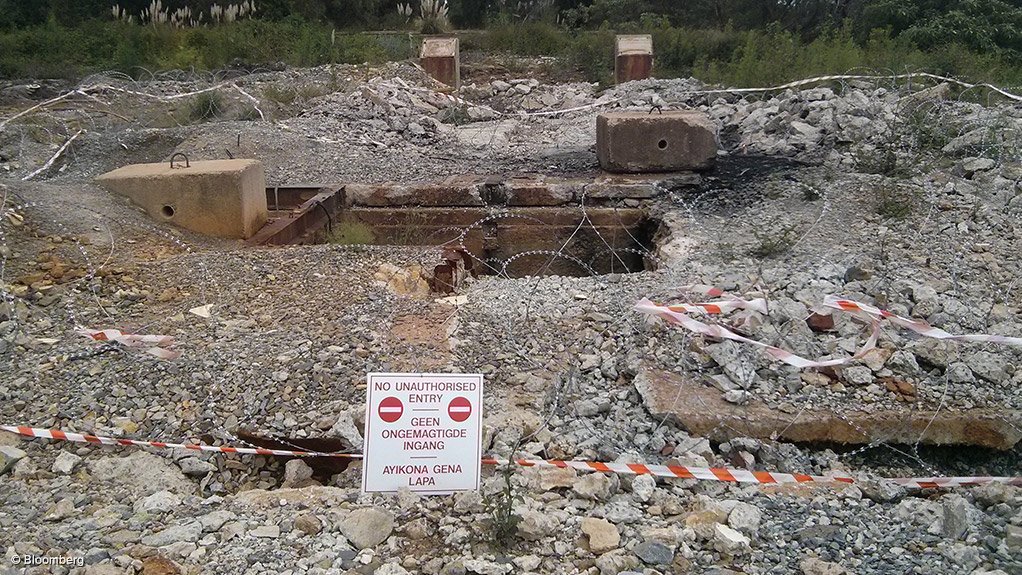The City of Johannesburg's (CoJ’s) Environment and Infrastructure Services Department (EISD) has called for the establishment of a unified forum to address illegal mining, emphasising the need for a CoJ illegal mining policy or bylaws.
EISD representative Cleopatra Mputle highlighted on August 29 that, while regional forums existed, a singular illegal mining forum involving both internal and external stakeholders, including provincial and national departments as well as business leaders, was essential.
During a virtual plenary meeting discussing the CoJ's strategy to combat illegal mining, Mputle noted that the city's isolated efforts across various forums, combined with legislative constraints, had hindered progress.
Despite illegal mining not being directly under the city's mandate, she said it remained a significant issue owing to its impact on infrastructure and finances.
She added that ongoing capital projects risk becoming futile if illegal mining activities persist.
Mputle stated that a proposal was being prepared for the mayor and city manager, aiming to present a comprehensive plan focused on law enforcement, mine closure, rehabilitation and infrastructure protection.
However, she said the absence of specific bylaws addressing illegal mining forced prosecutors to rely on national legislation, where there was limited expertise. As such, the EISD had been conducting research to identify challenges and gaps in addressing illegal mining.
Mputle presented a proposed action plan, which encouraged each city region to form forums identifying mining areas, activities and landowners within their jurisdictions.
Additionally, the Johannesburg Metro Police Department and Emergency Management Services are urged to participate in the National Joint Operational and Intelligence Structure (NatJoints).
Mputle said the EISD would continue its collaboration with mining companies and other stakeholders to close access routes to mining areas, arrange workshops and engage with the Department of Mineral Resources and Energy, which is being split into the Department of Mineral and Petroleum Resources and the Department of Energy and Electricity.
She said all relevant city departments and entities were encouraged to participate in NatJoints meetings to expedite the resolution of illegal mining issues.
Mputle noted that illegal mining in Johannesburg had caused extensive infrastructure damage, including the sewerage system, roads and stormwater pipes, leading to contamination of rivers and the water supply.
She said the CoJ had noted concerns regarding illegal water and electricity connections, cable theft and the strain that illegal mining and its support activities placed on city resources.
Mputle said this issue gained significant attention following a methane gas explosion in the Johannesburg central business district in July last year. The explosion on Lilian Ngoyi street killed one person, injured several others and disrupted services in the area.
Although city manager Floyd Brink had initially ruled out illegal mining as a cause, Mputle stated that the possibility remained, as evidence of underground illegal activity nearby was found. While it was more likely a case of "sewer farming", where sewerage infrastructure is stolen for use in nearby illegal mines, the final report on the matter was still being prepared, she said.
Mputle said the environmental impacts of illegal mining included pipeline sabotage, illegal water use and wastage and the formation of sinkholes and underground fires.
She estimated that the mining industry lost nearly R200-billion a year owing to theft of materials such as copper, electricity and diesel. Security costs had also increased, stretching both private security and municipal law enforcement thin.
She noted that social impacts included the influx of undocumented immigrants and increased crime, including prostitution and the illegal trade of explosives and other mining-related equipment.
In general, the presence of illegal miners has been associated with health and safety risks, brought about through unsafe mining practices, inadequate protective equipment and violent conflicts among illegal miners and between illegal miners and mining companies.
She said the CoJ could not address these issues alone owing to limited law enforcement resources, compounded by national constraints on policing, immigration and border control capacities.
Edited by: Chanel de Bruyn
Creamer Media Senior Deputy Editor Online
EMAIL THIS ARTICLE SAVE THIS ARTICLE
ARTICLE ENQUIRY
To subscribe email subscriptions@creamermedia.co.za or click here
To advertise email advertising@creamermedia.co.za or click here













